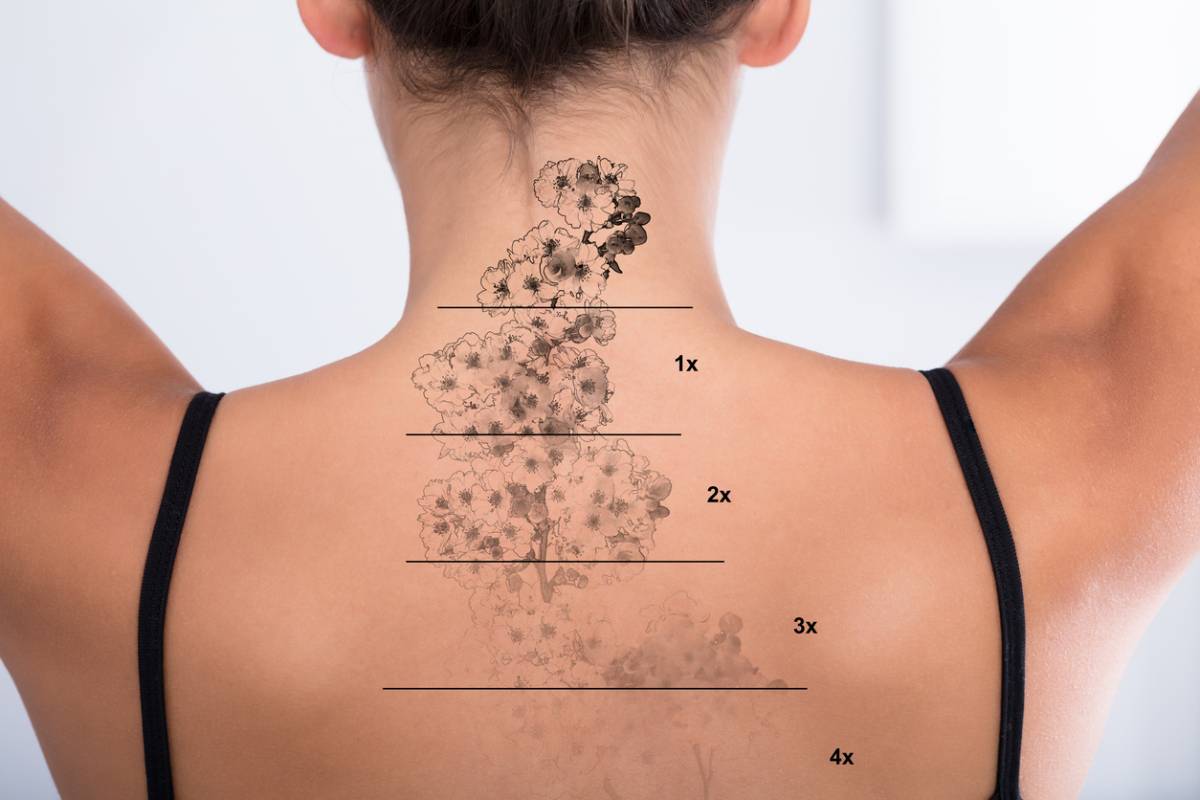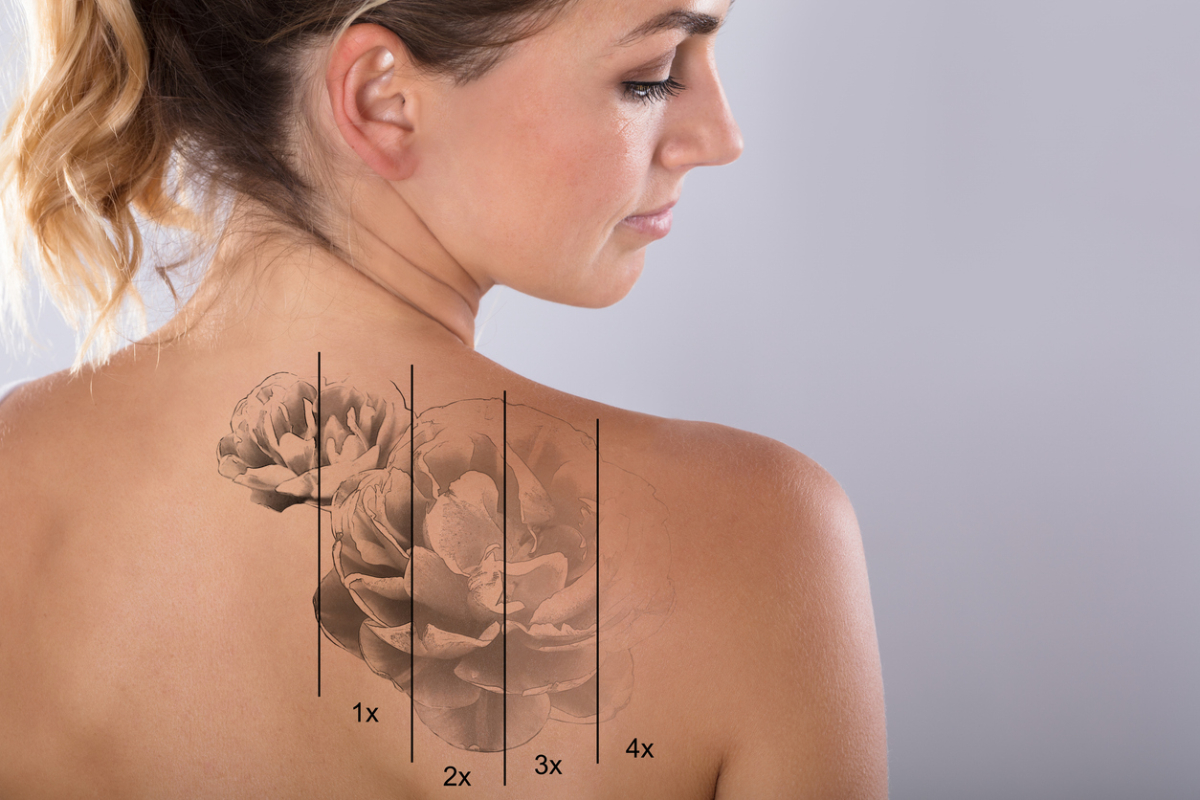How Many Sessions Does Tattoo Removal Take?
Not all tattoos stand the test of time. When the luster fades on a tattoo, it is likely time to get it removed. Tattoo removal can remove a massive weight from the shoulders of individuals who are unhappy with any of their current tattoos. However, it is important to know exactly what you are getting into when you sign up for laser tattoo removal. Specifically, you must recognize that complete tattoo removal typically takes several sessions. If you are considering tattoo removal, read this guide, which outlines the process.
What is Tattoo Removal?
Tattoo removal refers to the process of removing permanent ink from one’s skin using laser, surgery, or skin treatments. Several different methods can be used to remove tattoos, but the most common and well-known is laser tattoo removal.
How Many Sessions Does Tattoo Removal Take?
Generally, fully removing a tattoo can take six to twelve sessions. Although the lasers used in tattoo removal sessions are effective and powerful, tattoo ink can be very difficult to remove completely from the skin. It is much easier to apply a tattoo than to get rid of one, as tattoo ink exists in many layers under the surface of the skin.
Prior to receiving treatment, you can discuss with your laser technician how many sessions they think it will take to remove your tattoo.
What Occurs During Tattoo Removal?
The exact process and timeline of your tattoo removal will depend on the exact type of tattoo removal you decide to receive. The most popular tattoo removal methods are:
- Laser tattoo removal
- Chemical peels
- Surgical excision
- Dermabrasion
- Tattoo removal creams
During your consultation with your physician, you will have the opportunity to discuss what type of tattoo removal will work best for your particular situation. Your physician may ask you questions regarding your tattoo, including the following:
- Have you had any prior tattoo removals?
- When did you receive this tattoo?
- Was this tattoo applied via amateur methods or at a professional studio?
Overall, larger tattoos will require more sessions to remove, while smaller ones will take less time.
Caring for Your Skin Post Tattoo Removal
Your tattoo removal specialist will be able to advise you on how to care for your skin after your tattoo is removed. In most cases, you will be given or recommended to get an ice pack to apply to the part of your skin where your tattoo used to be.
Some patients may be prescribed an antibiotic cream to apply to their removal site to help prevent infection. In addition, you may be asked to bandage this part of your body for at least several days following your procedure.
You will also be advised to avoid exposing your tattoo removal area to the sun after your procedure, as well as to avoid exposing your treatment area to excessive amounts of hot water.
Potential Complications of Tattoo Removal
There are potential complications to tattoo removal that interested individuals should stay aware of. Some of the complications patients experience include:
- Infections
- Skin discoloration
- Skin irritation
- Pain
- Discomfort
- Rash
Attempting to remove a tattoo on your own can result in discomfort or a medical hazard. In addition, engaging in this process at a tattoo parlor or spa can carry complications.
Tattoo removal is best performed by a trained dermatologist who is well-versed in the anatomy and physiology of the skin. A medical professional will be the best equipped to provide you with a safe and effective procedure that delivers the results that you are looking for.
Does Tattoo Removal Result in Scars?
It is quite normal for many patients to experience some scarring following their tattoo removal. Engaging in the recommended care practices following your procedure can help diminish your chance of scarring in the aftermath of the procedure. You can discuss these details with your physician prior to treatment.
Your Best Resource for Tattoo Removal
Epione Beverly Hills is wholly dedicated to providing the best in tattoo removal and cosmetic dermatology. If you are interested in having a tattoo removed, contact us today to set up an appointment.

